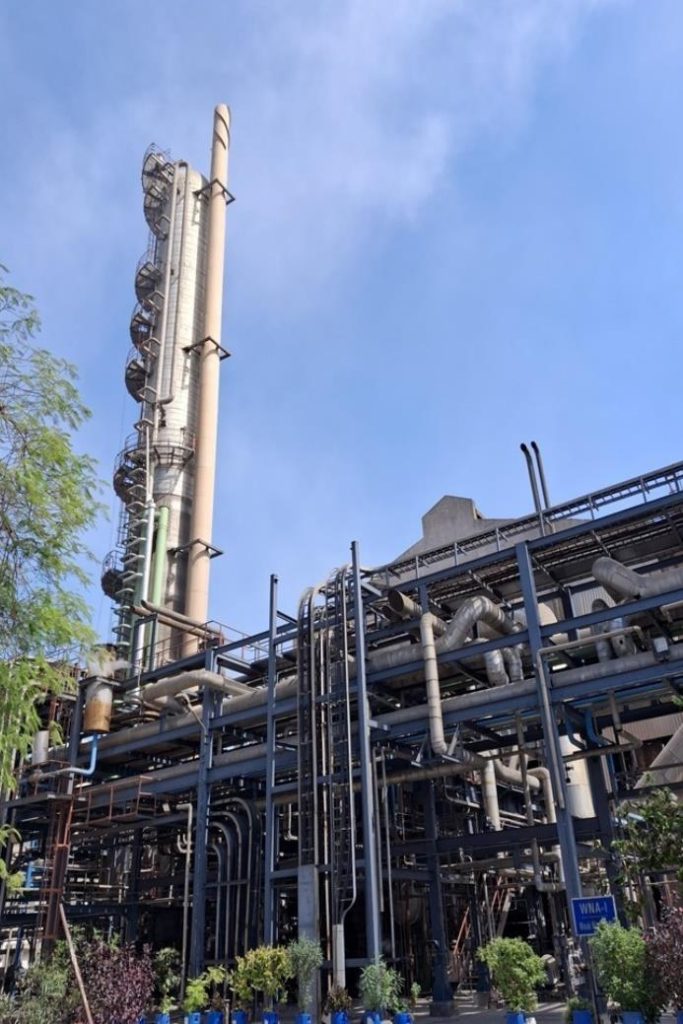Asia

25 March 2025
Press Release: Clariant Climate Campaign winner GNFC cuts 44,000 tons/month CO2 equivalent emissions with EnviCat N2O removal catalyst
Clariant Press Release: Munich, 25 March 2025
- Gujarat Narmada Valley Fertilizers & Chemicals Limited (GNFC) implemented Clariant’s EnviCat N2O-S catalyst for nitrous oxide (N2O) abatement
- The catalyst installation at GNFC’s nitric acid plant in Gujarat demonstrates exceptional performance, reducing N2O emissions by 44,000 tons per month of CO2 equivalent
- EnviCat N2O-S, a well-established, drop-in solution capable of removing more than 95% of N2O from the off-gas of nitric acid plants proves highly efficient
Clariant, a sustainability-focused specialty chemical company, today announced remarkable results from its Climate Campaign for nitrous oxide abatement at Gujarat Narmada Valley Fertilizers & Chemicals Limited’s (GNFC) facility in Gujarat, India. The installation of Clariant’s EnviCat N2O-S catalyst has shown outstanding performance since October 2024, with monitoring data demonstrating significant reduction in N2O emissions equivalent to 44,000 t/month CO2 equivalent.
Xaver Karsunke, Head of Specialty Catalysts at Clariant, commented, “Our partnership with GNFC, a pioneering force in India’s fertilizer and chemical industry, marks a significant milestone in industrial decarbonization efforts. The exceptional performance of EnviCat N2O-S at GNFC’s facility demonstrates how our sustainable catalyst solutions can help industry leaders achieve substantial greenhouse gas reductions.”
Mr. M. I. Shamsi, Executive Director, Gujarat Narmada Valley Fertilizers & Chemicals Limited, stated, “As a company committed to environmental stewardship since our establishment in 1976, this collaboration with Clariant aligns perfectly with our sustainability goals. The impressive performance of the N2O abatement system not only showcases our dedication to reducing environmental impact but also strengthens our position as an industry leader in sustainable chemical manufacturing.”
The implementation at GNFC’s facility has demonstrated strong and consistent performance in CO2 equivalent reduction. Based on the initial four months of operation, the projected annual CO2 equivalent reduction is expected to reach approx. 520,000 metric tons, with further improvements anticipated following a planned catalyst addition during the next maintenance shutdown.
Prakash Babu, CEO of Süd-Chemie India Pvt Ltd (SCIL), added, “We are delighted to see such encouraging results at GNFC’s facility. The successful implementation of EnviCat N2O-S and its remarkable performance in reducing CO2 equivalent emissions reinforces our commitment to providing high-quality products, services, and innovative solutions that support India’s fertilizer and chemical manufacturers in achieving their sustainability goals. This project exemplifies the significant impact our technologies can have in industrial decarbonization.”
While nitric acid is essential for manufacturing fertilizers, its production process emits N2O, which is almost 300 times more harmful to the climate than CO2. The EnviCat N2O catalyst series effectively removes N2O and other nitrogen oxides, designed as a drop-in solution that can be easily installed without disrupting manufacturing processes. With over 50 successful installations globally and 20 years of market presence, EnviCat N2O continues to demonstrate its effectiveness in industrial applications.
Clariant initiated the Climate Campaign to offer producers an economical way to reduce emissions and inspire them to transition towards climate neutrality. From November 2021 to March 2022, winners were selected to receive a complimentary load of the EnviCat N2O-S catalyst. All selected companies had no existing N2O abatement systems in place, representing a significant opportunity for reducing greenhouse gas emissions in the nitric acid production sector.




